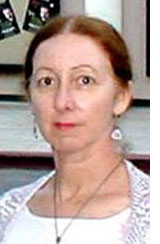| |
|
Israel's crisis? He's kidding, right? Egypt made this mess and the crisis threatens Cairo much more than Jerusalem. Israel, unfortunately, knows how to deal with terrorism. Egypt will have to deal with a threat to the regime.
Egypt occupied Gaza from 1949-67, using it as a duty free port for the military. Palestinians couldn't exit without Egyptian permission, and the Egyptians didn't give permission. UNRWA warehoused the refugees under the watchful eyes of the Egyptian army, creating today's multi-generational - and anti-Egyptian - humanitarian disaster. When Israel acquired Gaza in the Six Day War, it found poor, miserable Palestinians living in hovels next to warehouses of smuggled cars, furs, cigarettes and liquor belonging to the Egyptian army.
Israel's contribution to the problem was the Oslo process that set the Palestinians on a path toward self-government that has devolved into anarchy. The United States joined Israel in the fantasy that the Palestinians could "make peace" without a general Arab agreement on the permanence and legitimacy of Israel in the region. Both pretended the Palestinians could exercise judgment independent of their financial and ideological sponsors - and that their judgment would be moderate.
Hamas is an ideological offshoot of the Muslim Brotherhood - the Islamist organization that threatens Mubarak's secular, nationalist and repressive rule in Egypt. Because Mubarak has been ruthless in suppressing the moderate opposition over time, real political parties and divergent political thinking have been outlawed. Only the Brotherhood has retained organizational capabilities in Egyptian society. Egyptians face the specter of Mubarak, Mubarak fils or the Revolution. The Revolution is looking more likely.
The ability of Hamas, now funded by Egypt's adversary Iran, to enter Egypt and coordinate and cooperate with the Brotherhood and its ability to conduct terrorist operations in the Sinai against the all-important Egyptian tourism industry, is Mubarak's nightmare. But shoving Gazans back into their prison, or breaking their legs, would make ugly images on al Jazeera, further eroding Mubarak's image in Egyptian and pan-Arab eyes.
Egypt and Israel, like Jordan and Israel, share security concerns about the Palestinians and radical revolution. Jordan has made the decision to work with Israel; Egypt isn't there yet.
We repeat our view that the solution to Gaza will not emerge as long as Hamas or Fatah is permitted to pretend that it governs. When the UN saw anarchy in the dissolution of Yugoslavia, it was prompted to act. The United States and the UN should look at the breeching of the Egyptian border and the declared and active war against Israel - two members of the UN - and call a halt to the experiment in Palestinian self-rule. It will be messy, but not as messy as the undermining of Cairo.
TORAH ON ONE FOOT
The more you study, the more to learn
By Rabbi Leonard Rosenthal
 SAN DIEGO—President John F. Kennedy said: "The greater our knowledge increases, the greater our ignorance unfolds." SAN DIEGO—President John F. Kennedy said: "The greater our knowledge increases, the greater our ignorance unfolds."
He was referring to what those of us who have studied any subject with intensity already know: the more one masters a subject the more one realizes how little one knows.
Jewish scholars and sages who studied the Torah intensively came to the same conclusion long ago: No matter how much Torah one studies, there is always more to learn. New understandings and interpretations arise every time a text is reviewed. There is always a new facet to explore. There is no limit to the wisdom that may be mined from Torah. Our sages said: "Turn it over and over [look at it again and again], everything is contained inside."
In Parashat Terumah we read about the construction of the Mishkan and the ritual furnishings it contained. One of the most prominent was the Aron, the Holy Ark, in which the tablets of the Ten Commandments were stored: "They shall make an ark of acacia wood, two and half cubits long, a cubit and a half wide, and a cubit and a half high."* (Ex. 25:10)
Our sages said that the Aron Kodesh symbolizes the Talmid Chacham, the Torah Scholar. They gave two reasons. The first is obvious: just as the Ark contained the Ten Commandments so does Torah fill the Talmid Chacham. The second reason is less obvious. They noted that the Ark was not built with full cubit measures (such as one or two cubits) but rather broken cubit measures (one or two and one-half cubits). This "broken measure" informs us that a Torah Scholar’s knowledge is always broken or incomplete. No matter how much he or she studies, there will always be a vast sea of Torah yet to learn. No human being will ever be able to completely master the Torah. Realizing his or her intellectual limitations should lead the Torah Scholar to live a life of humility, despite his or her learning.
I am always amused when Torah School students or adults complain about studying the same holiday or Bible story "over and over again." Perhaps, as President Kennedy said, only when one possesses ample knowledge does one realize how little one knows.
I pray that all of us may some day know enough Torah to realize how little Torah we know.
Rabbi Rosenthal is spiritual leader at Tifereth Israel Synagogue in San Diego


AMAZING STORIES OF JUDAISM
A Shmitah miracle in a banana orchard
By Rabbi Baruch Lederman
 SAN DIEGO—The Orthodox Union teaches that Shmitah, the seventh year, "is analogous to the seventh day, the Shabbat, in that it is a 'year of rest' for the Land. No planting or harvesting may be done that year; the population has to rely on the produce of the sixth year for three years, including the eighth, because no planting is permitted in the seventh, which the L-rd promises to supply with abundance (Leviticus 25, 20-21)." SAN DIEGO—The Orthodox Union teaches that Shmitah, the seventh year, "is analogous to the seventh day, the Shabbat, in that it is a 'year of rest' for the Land. No planting or harvesting may be done that year; the population has to rely on the produce of the sixth year for three years, including the eighth, because no planting is permitted in the seventh, which the L-rd promises to supply with abundance (Leviticus 25, 20-21)."
Rabbi Shmuel Bloom of Agudath Israel of America is a busy man involved in important matters concerning Klal Yisroel. Why would he, then, spend a considerable amount of hours traveling to look at bananas during his recent trip to Eretz Yisroel?
A completely secular farmer whose produce is bananas decided that he would undertake to keep Shmitah this time around. He approached the Keren HaShviis for assistance and they stipulated that he would be registered in their program if he would also undertake to be personally Shomer Shabbos throughout Shmitah. He agreed. Keren HaShviis undertook to cover his farming expenses in return for which all the produce would become the property of Otzar Beis Din and would be distributed in full accordance with Halacha.
Israel has suffered a significant cold spell over the past 2 to 3 weeks.
Bananas don't like cold. Cold doesn't like bananas. Needless to say, they don't get along. When bananas are still growing and get hit with frost, they turn brown and become rock-solid hard.
The hero of our story, the banana farmer, knew he was in deep trouble when the relentless cold hadn't let up for over a week. He lived a distance from his orchard and hadn't yet seen the damage with his own eyes. He began to receive calls from his neighbor farmers, who have orchards bordering his, complaining bitterly that their entire banana crop had been destroyed by the frost.
He decided it was time to inspect the damage up close, no matter how painful it may be.
He drove up close to Tverya to inspect his orchard, as well as those of his neighboring farmers. As he passed from one orchard to another, he was overwhelmed by the damage. Not a single fruit had survived, no tree was spared. His neighbors took quite a beating. All the bananas were brown, hard as a rock. He could only imagine how bad his trees must have gotten it.
Yet when he finally got to his orchard, he was awestruck! All of his bananas were yellow and green. It's as if his orchard was not part of this parcel of land. His orchard bordered those of his neighbors, but not a single tree of his was struck by the frost. It's as if a protective wall kept the damage away. At first he thought he was imagining it, and as he rushed from one section of his orchard to another, the realization that more than the farmer keeps the Shmitah, the Shmitah keeps the farmer hit home.
He immediately called his contacts at Keren HaShviis and yelled into the phone, "Karah Nes!, Karah Nes!"
A miraculous modern-day manifestation of V'Tzivisi Es HaBracha!. There is no way to explain this other than that HaKodesh Baruch Hu keeps His promises. He says keep Shmitah, and I'll take care of you. He sure does!
Keren HaShviis reports that farmers that until now refused to keep Shmitah, have been turning to the Keren following the losses suffered as a result of the frost, they are now ready to commit to Shmitah observance.
And so, Rabbi Bloom took the time to travel all the way to Tverya and back to witness this awe-inspiring phenomenon. During the previous Shmita (2000-2001) Agudath Israel of
America provided over $1,000,000 to Keren HaShviis. It plans to do even more this time around.
The foregoing true story was submitted by Bonnie Fine. Dedicated by Avraham & Roz Dimenstein in memory of Rabbi Henry & Rebbetzin Esther Soille.
 SAN DIEGO— If political activist and documentarian Michael Moore has spiritual cousins in Israel, surely their names are Guy Meroz and Orli Vilnai-Federbush, who made the 58-minute film, Paying for Justice. SAN DIEGO— If political activist and documentarian Michael Moore has spiritual cousins in Israel, surely their names are Guy Meroz and Orli Vilnai-Federbush, who made the 58-minute film, Paying for Justice.
Moved by the plight of Holocaust survivors in Israel, the pair introduces viewers to the choices one must make while living on a paltry pension (food or medicine?), and then takes us on an odyssey through the bureaucracy of the Israel government, the Claims Conference, and also provides a snapshot of life for Holocaust victims in Germany.
Here’s a shocker: Holocaust victims are better treated in Germany than they are in Israel. If they cannot afford a home, one will be provided, and their medicines are free.
 The English- and Hebrew-language documentary will be screened by the 18th Annual San Diego Jewish Film Festival at 5 p.m., Monday, Feb. 11 at the AMC La Jolla 12 Theatre. The English- and Hebrew-language documentary will be screened by the 18th Annual San Diego Jewish Film Festival at 5 p.m., Monday, Feb. 11 at the AMC La Jolla 12 Theatre.
The two film makers point out effectively that money and assets held by various agencies morally belongs to the Holocaust victims, not to those agencies. The Claims Conference distributes money paid in reparation by the German government for the Holocaust; some of it held by banks that decline to make disbursements without full documentation. Art museums have paintings looted from Holocaust victims. The Jewish National Fund has land whose owners were murdered in the Shoah.
And meanwhile, the survivors themselves suffer—or die—while the bureaucracy grinds on unable or unwilling to return the assets or forward the money to rightful owners.
One wants to cheer Meroz and Vilnai-Federbush as, in the style of Michael Moore, they try to confront politicians, turn official meetings into their private press conferences, and show how frustrating it can be to work with a bureaucracy that seems to fatten itself on delay.
On the other hand, one must remember that Meroz and Vilnai-Federbush are shock troops for the forces of social advocacy. They are on a mission, they have a point of view, and everything that they do—and everything they show and don’t show in their documentary—may be designed to reinforce their point of view.
We can see that people in positions of power and responsibility shrink on the approach of Vilnai and Meroz. We are led to believe that this is because they have something to hide and fear being exposed by the two political campaigners. But, an alternative construction, is that, based on previous experience with Meroz and Vilnai, the officials fear that no matter what they say, they will be made to look bad.
Which construction is correct? Careful viewing is required.


REFLECTIONS
A letter to Margot—19 years wasn't enough
By Sheila Orysiek
 SAN DIEGO—The first time I saw you, you were running for your life to hide under a bed. The lady who was selling you pulled you out by the scruff of your neck. There was a second female kitten that looked just like you but another buyer declared your sister was more beautiful, grabbed her and left you behind. I paid my twenty five cents and you were mine. As I cuddled you in my arms, you were so shy you shivered and closed your eyes. SAN DIEGO—The first time I saw you, you were running for your life to hide under a bed. The lady who was selling you pulled you out by the scruff of your neck. There was a second female kitten that looked just like you but another buyer declared your sister was more beautiful, grabbed her and left you behind. I paid my twenty five cents and you were mine. As I cuddled you in my arms, you were so shy you shivered and closed your eyes.
I am remembering this anniversary day how empty the house was when some years ago I released you to your eternal rest. Nineteen years is a long lifespan for a cat, but not enough for a friend. You were never my pet, you were my companion. We had our differences of opinion but I always eventually acknowledged the pragmatism and common sense of your decisions and went along with them. I gladly made the adjustments to my life to accommodate your needs and schedule.
From a shy kitten you grew to be a beautiful brown tortoiseshell cat with a lush silky coat and large yellow eyes. Sometimes those eyes laughed at me; like the time you banged on the front door and when I came to answer it you ran up a tree. It was a favorite game of yours and I was never smart enough to avoid the joke, no matter how often you repeated it. You were very fussy about your front paws. They were so dainty and turned out that I named you for my favorite ballerina, Dame Margot Fonteyn, Prima Ballerina Assoluta. You were an honor to that name. When we walked down a dark hall or into a dark room you screamed in advance because you knew how clumsy I was in the dark, I would inevitably step on those delicate paws.
You patiently put up with my frailties. I couldn’t run up a tree and get my dinner as you could. Though you didn’t know my name, you knew me very well. You didn’t know our address but never failed to find the house. My sense of priorities puzzled you; as I scrubbed the floor while you sunned yourself on the roof. I struggled with soap, washers and laundry, while you kept yourself immaculate needing none of these things. How many times I envied you as I dashed around from chore to chore while you lay in the sun lazily licking your paws! Now as I look back I realize your sense of priorities was correct.
You didn’t run around and make a lot of noise, like some (in your opinion) undignified dogs do, but nevertheless you were an excellent guardian of the house, letting me know emphatically when someone unbidden was on the property. You paced, whined and twined around me, until I paid attention to your message that all was not well.
You had an innate knowledge of what was best for you. Remember the time the vet prescribed some pills? I placed one in your mouth, held your jaws shut and patted your throat. You looked at me very seriously with those large yellow eyes and made a big show of swallowing repeatedly. I opened your mouth and checked to see that the pill was gone. You suffered that indignity because you knew humans are not as courteous as cats. Of course several days later I found the pill behind the drapes and you were right - you recovered without them.
Speaking of courtesy; you never forgot to acknowledge me even if you were just passing by. And, how you loved visitors! You stood beside me as I greeted or said good-bye to people and you sat politely in the room throughout the visit. Of course, you also enjoyed the cookies I put out for guests on the coffee table. You knew I wouldn’t approve, so you used your cat skills and picked up a cookie as you walked past never breaking your stride and then went behind the door to finish the cookie.
When we went to the vet for a checkup you buried your face in my arm and closed your eyes and I remembered the kitten you used to be. We were young together. We raised our children together. We enjoyed the same chocolate chip cookies, though I never let you have more than a sliver. And then we grew old together.
I had taken for granted all those years your ability to jump and the grace of your movements. Your fur was not as silky as it used to be and there was some gray on your nose. You spent more time asleep in the alyssum with sprinkles of flower petals on your head. You always loved to smell roses, too.
When you began tottering about and one day I found you asleep in a pool of rain water, I reluctantly realized our remaining time together was limited. I realized it but somehow I couldn’t really bring myself to believe it. Finally, it became evident that you were in pain. I held you and sobbed over you and knew I could only give you the final gift of release. So now, I walk around a house still filled with your spirit but my little wise friend, Margot, is with her Creator and I still miss her.
The Rabbi at Torah Study has told us that Judaism does not believe that animals have souls. I don’t argue - I simply looked into Margot’s eyes and saw there the same hand of G-D which made me. What right have I to deny her the possibility of a soul?


WHAT'S GOOD TO EAT IN SAN DIEGO?
The buzz about Firefly Grill & Wine Bar
By Lynne Thrope
 ENCINITAS, California—Location is everything, as food lover and wine enthusiast Jim Barrasso well knows. He’s transformed the Firefly Grill and Wine Bar into the hottest restaurant in North County – it’s been buzzing with business since it opened last year. And the line outside the door proves it! ENCINITAS, California—Location is everything, as food lover and wine enthusiast Jim Barrasso well knows. He’s transformed the Firefly Grill and Wine Bar into the hottest restaurant in North County – it’s been buzzing with business since it opened last year. And the line outside the door proves it!
Just a short jaunt from Temple Solel on El Camino Real is where this stylish and comfortably contemporary place awaits your patronage for an imaginative pre-Shabbat dinner (or any other meal).
 Everything is new from the eye-catching burnt orange, sponge-painted wall to the seasonally changing menu to the wide-ranging varietals, which are well within reach. This is the place to experience wines from smaller, less known wineries; it received the 2007 Wine Spectator Award of Excellence, so have faith in Barrasso’s selections that are continually evolving. Wines by the glass are not more than $12 and bottles range in price from $17-$100. The Mitolo Shiraz (Australia, 2006) I had proved to be the perfect pairing with the tender and naturally Braised Angus Short Beef Ribs ($24) blanketed on roasted garlic potato puree. Everything is new from the eye-catching burnt orange, sponge-painted wall to the seasonally changing menu to the wide-ranging varietals, which are well within reach. This is the place to experience wines from smaller, less known wineries; it received the 2007 Wine Spectator Award of Excellence, so have faith in Barrasso’s selections that are continually evolving. Wines by the glass are not more than $12 and bottles range in price from $17-$100. The Mitolo Shiraz (Australia, 2006) I had proved to be the perfect pairing with the tender and naturally Braised Angus Short Beef Ribs ($24) blanketed on roasted garlic potato puree.
My dinner companion’s Seared Filet Mignon ($11) selected from the “Sample” section of the menu was equally juicy as a result of its port wine demi glace preparation. Both presentations were not only picture worthy, but the flavors of each dish were combined so expertly none of them were overpowering.
Equally spectacular in creativity and taste was the five-layered Roasted Organic Beet Salad ($10) that alternated herbed goat cheese with the beets. Topping off this wondrous terrine-shaped salad was a light honey truffle vinaigrette that made the whole dish scream, “Look at me!” I did and am still. I think our well-trained server, Jamie, got a kick out of seeing the obvious delight on our faces as she competently served this elegantly prepared treat. Other menu offerings include Colorado Leg of Lamb ($25) with stewed white beans, braised swiss chard, tomato confit, olive tapenade crostini and lamb jus, and Seared Ahi ($28) with roasted cauliflower, kalamata olives, cauliflower puree, tomato confit and black truffle jus.
Memorable, too, was the dessert. Barrasso recommended the Roasted Peanut and Chocolate Fondant ($8), so we went for it. The geometry of the plate on which it was served and its innovative contents sealed the deal for me. I was on the phone all the way home to my 100 best friends to share the wizardry of Firefly Grill and Wine Bar.
And that magic can be credited to Executive Chef Aaron Daily. It’s obvious from the first dish that this guy is well seasoned in the kitchen; turns out, Chef Aaron has a resume that would entice any five star establishment to steal him away. Remember the landmark Prince of Wales Room at the Del Coronado Hotel? That would be Chef Aaron. And Cilantro in Cardiff-by-the-Sea? That would be Chef Aaron, too. He’s been the Saucier at Fairbanks Ranch Country Club, held positions at the St. Regis Resort in nearby Dana Point, and the Chef de Partie at the Rancho Bernardo Inn. But, fortunately for us readers, he has made his home at the Firefly Grill and Wine Bar; we are the lucky recipients of his culinary experience and talent.
Together Barrasso and Daily have created an unforgettable experience where you can sip, sample, and savor some eclectic dishes in an unpretentious atmosphere. Check out their website at www.fireflygrillandwinebar.com for upcoming events and wine pairing dinners. In addition, every Friday – Sunday, they offer a 4 course tasting menu that consists of a flight paired with a small bite from the “Sample” section of the menu ($65). For reservations call 760.635.1066….B’Tayavon
Firefly Grill and Wine Bar is located at 251 N. Camino Real in Encinitas, and is open daily for dinner at 4:30.
SAN DIEGO JEWISH WORLD THE WEEK IN REVIEW
Peter Garas in Canberra, Australia: Finding mom's effects led to columnist's study of genealogy and the Holocaust
Donald H. Harrison in San Diego: San Diegans bid farewell to Rose Schiff: matriarch to performers and educators
Donald H. Harrison in San Diego: When triplet sisters become mothers
Donald H. Harrison in San Diego: First graders receive siddurim in special presentation at Hebrew Day School
Natasha Josefowitz in La Jolla, California: Reading, writing, counting and speaking —are we as competent as we should be?
Dorothea Shefer-Vanson in Mevasseret Zion, Israel: Israeli school ceremony celebrates pupils demonstrating their reading of Bible
Ira Sharkansky in Jerusalem: Why Israel prefers to just muddle through
Carol Davis in San Diego: Works by Young Playwrights impressive
Donald H. Harrison in San Diego: Field Notes: A 17-Mile Drive kind of novel
Alan Rusonik in San Diego: Why genealogy is important for children
Plus: Super Tuesday results, State by State
Shoshana Bryen in Washington, D.C.: U.S. winning Al Qaeda's strong horse derby
Cynthia Citron in Los Angeles: The Monkey Jar riddle: who’s the monkey?
Donald H. Harrison in San Diego: Eternal Light documentary highlights one of the more meaningful television series
Ira Sharkansky in Jerusalem: Palestinians, Labor have penchant for self-inflicted political damage
Michael C. Abrams in San Diego: Mensch in full, Rabbi Leonard Rosenthal celebrated on 20th year at Tifereth Israel
Peter Garas in Canberra, Australia: 'Retarded' bombers story raises suspicions
Donald H. Harrison in San Diego: The likely GOP choice for vice president
Rabbi Leonard Rosenthal in San Diego: Torah portion on slavery quite troubling
Sheila Orysiek in San Diego: How far does community responsibility go?
David Strom in San Diego: Two brothers trying to survive together
Marsha Sutton in Del Mar, California: Mother’s death: A most Jewish moment
< BACK TO TOP
|
|
